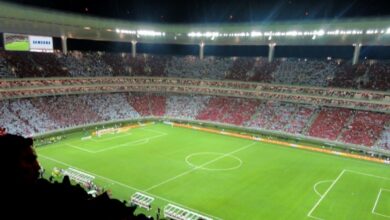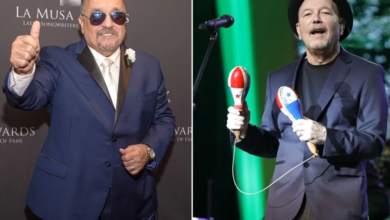Daniel Ortega is left alone: What reading can be done about it?
After the recent resignations of Nicaragua's legal adviser before the International Court of Justice and the Central American country's ambassador to the Organization of American States, Daniel Ortega loses relevant support.

Photo: Office of the President, ROC
LatinAmerican Post | Nicolás Donoso Álvarez
Listen to this article
Leer en español: Daniel Ortega se queda solo: ¿Qué lectura se puede hacer al respecto?
Nicaragua has recently been once again in the eyes of the entire continent and, for a change, not for positive reasons. In just a few days Daniel Ortega has lost two heavyweights of international support. First, to the Nicaraguan ambassador to the Organization of American States (OAS), Arturo McFields Yescas, who denounced before the forum that human rights are violated in Nicaragua and that the country is immersed in a dictatorship. And immediately afterward, almost as if it were a domino effect, Paul Reichler resigned from his position as legal adviser to the Central Americans before the International Court of Justice (ICJ), after accusing Ortega of being a dictator. He also reminded him that a few years ago he brutally repressed peaceful demonstrations (2018).
These two events occurred at similar times, and signify a significant loss of the scant support that Daniel Ortega has at the international level. According to figures provided by the United Nations High Commissioner for Refugees (UNHCR), between 2018 and the first half of 2021, more than 108,000 Nicaraguans had to flee their country due to the repression that thousands accused of after the 2018 demonstrations. where they demanded the resignation of Ortega.
While a 2021 United Nations (UN) report noted that since the sociopolitical outbreak in Nicaragua, the balance of the repression is overwhelming: nearly 300 deaths, more than 2,000 injuries, and 1,614 people arbitrarily detained. Lapidary reports regarding the complex situation that this country is going through.
Palabras del Embajador de #Nicaragua Arturo McFields Yescas al Consejo Permanente de la #OEA pic.twitter.com/cMNiv69CIh
— OEA (@OEA_oficial) March 23, 2022
Is the dictatorship in Nicaragua faltering or is it just a mirage?
After the blow that the complaints and resignations meant, the outlook for Daniel Ortega and his wife Rosario Murillo could be complex. Especially since losing support abroad can also mean internal destabilization in your most trusted group. “I take the floor today on behalf of more than 177 political prisoners and more than 350 people who have lost their lives in my country since 2018. I take the floor on behalf of the thousands of public servants, at all levels, civilians and military, of those who are forced by the Nicaraguan regime to pretend and fill vacancies and repeat slogans, because if they don't they lose their jobs”, thus began Arturo McFields Yescas' intervention before the OAS, with an accusing finger which was aimed directly at the regime.
But from Nicaragua, Daniel Ortega and his team did not flinch, and only limited themselves to saying in a statement that McFields' statements "do not represent them and that nothing he said has any validity." And what is more, the response from Nicaragua was not long in coming and they simply chose to dismiss the Nicaraguan ambassador who had been in office since October 2021 and appoints Francisco Obadiah Campbell Hooker, current Nicaraguan ambassador to the United States, as his successor.
With Paul Reischler the panorama was not very different, the lawyer chose to abandon the position he had before the Court of Justice, sending Ortega many messages. "I don't know what made you change, but you are no longer the Daniel Ortega whom I respected, admired, loved, and served with pride for so many years." He also accused him of destroying democracy, something for which so many international organizations have persecuted him for years, but without success.
Pronto estaremos en Nicaragua, desarrollando la Comisión Mixta de Alto Nivel, trabajando temas de cooperación e interés para ambas naciones. Juntos trabajaremos en la construcción de un mundo multipolar e igualitario. ¡Somos Testigos del Parto de un Nuevo Tiempo! pic.twitter.com/V7kKrFOeS6
— Nicolás Maduro (@NicolasMaduro) March 31, 2022
Venezuela is an example that can elucidate certain issues
That Daniel Ortega's regime falls is a true utopia and a mirage. It is only necessary to look in this part of the continent how many times Venezuela was not on the first covers concerning a possible fall of Nicolás Maduro, but that never happened. Without going any further, the former attorney general of the Public Ministry of Venezuela, Luisa Ortega Díaz, was dismissed by the Constituent Assembly in 2017 after she accused, among other things, Chavismo of "crimes against humanity and corruption and of having manipulated the election to the Constituent Assembly".
This ends up being very similar to the constant electoral fraud that Daniel Ortega has presumably committed to getting re-elected on more than one occasion in his country. The accusations of electoral fraud, the alleged cases of corruption, the restriction of independent journalism, the imprisoning of opponents, and the receiving of international sentences speak of the similarities that both nations, unfortunately, go through.
And the picture, once again, does not seem to be very encouraging. In dictatorships, from hope to disillusionment, from satisfaction to disgust, and from calm to storm can happen in a matter of seconds. And that many and many know it very well.





